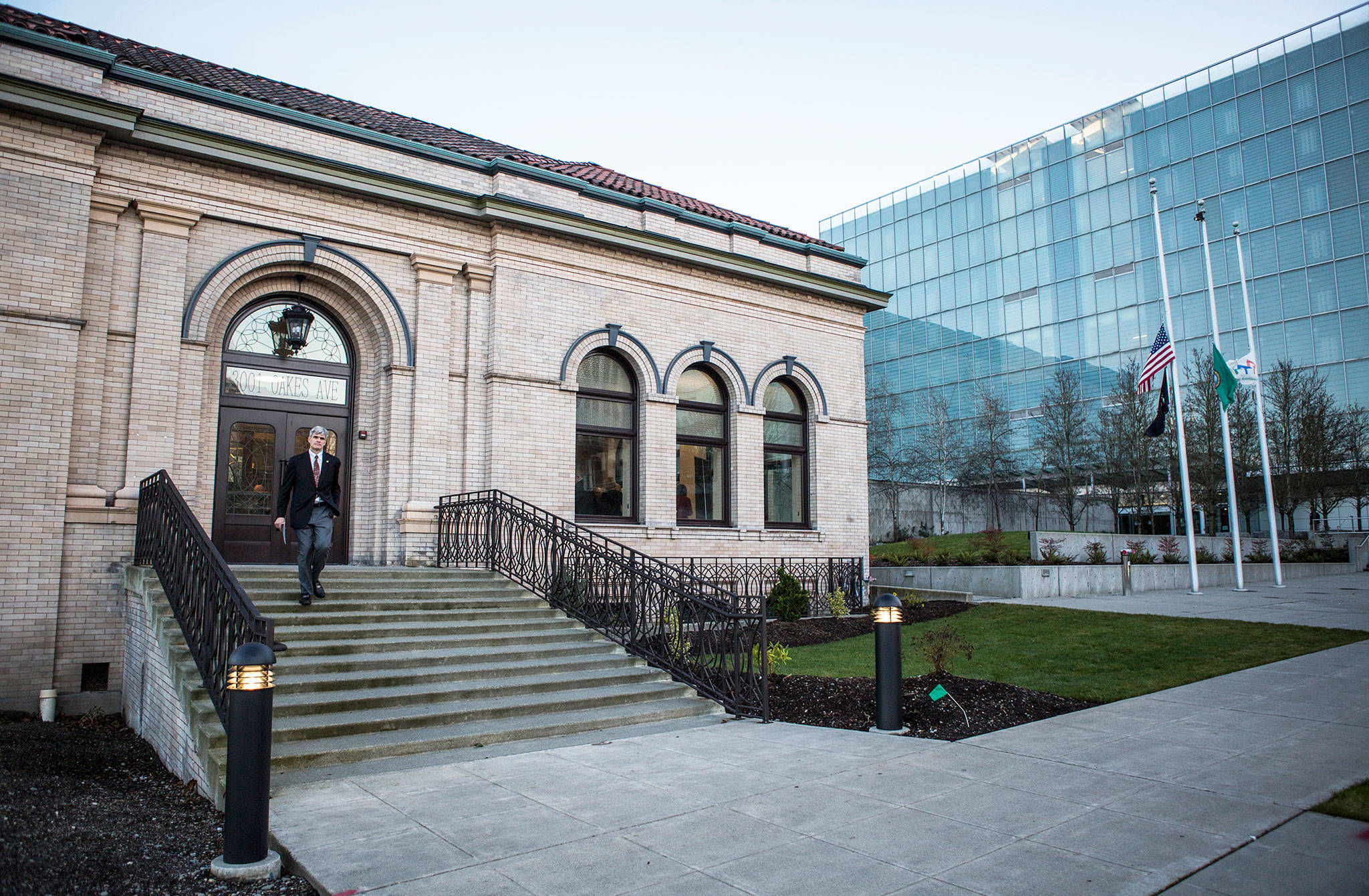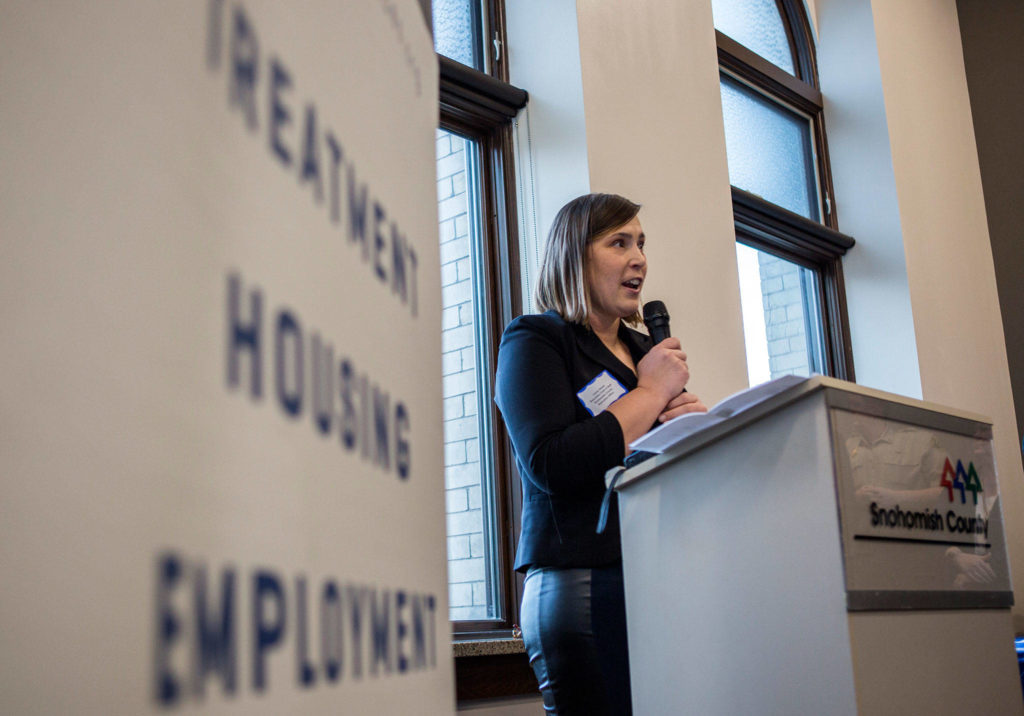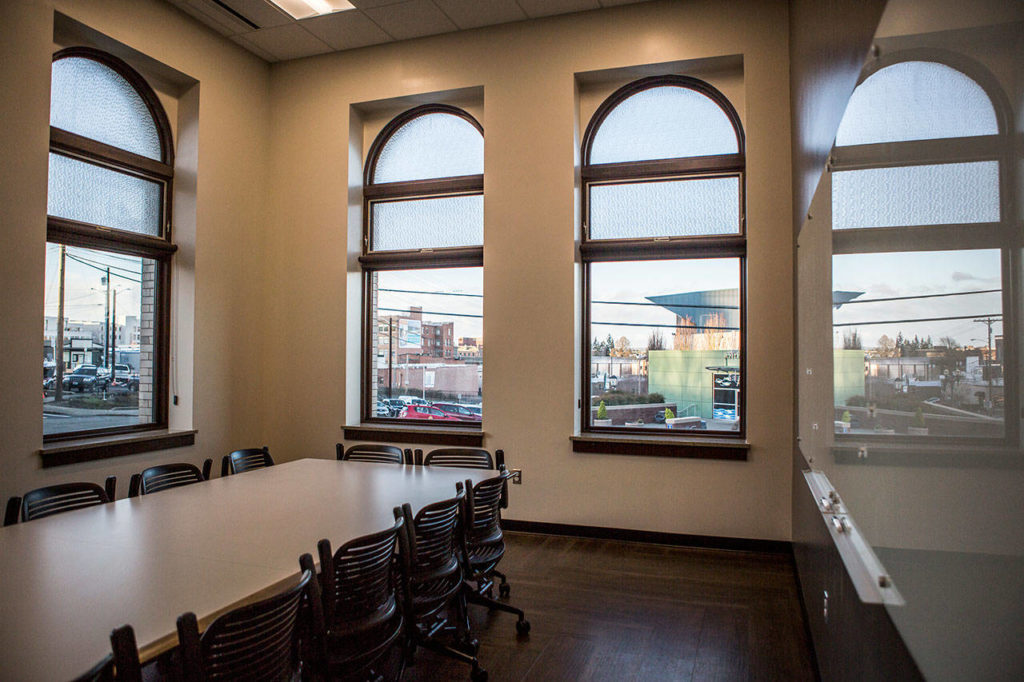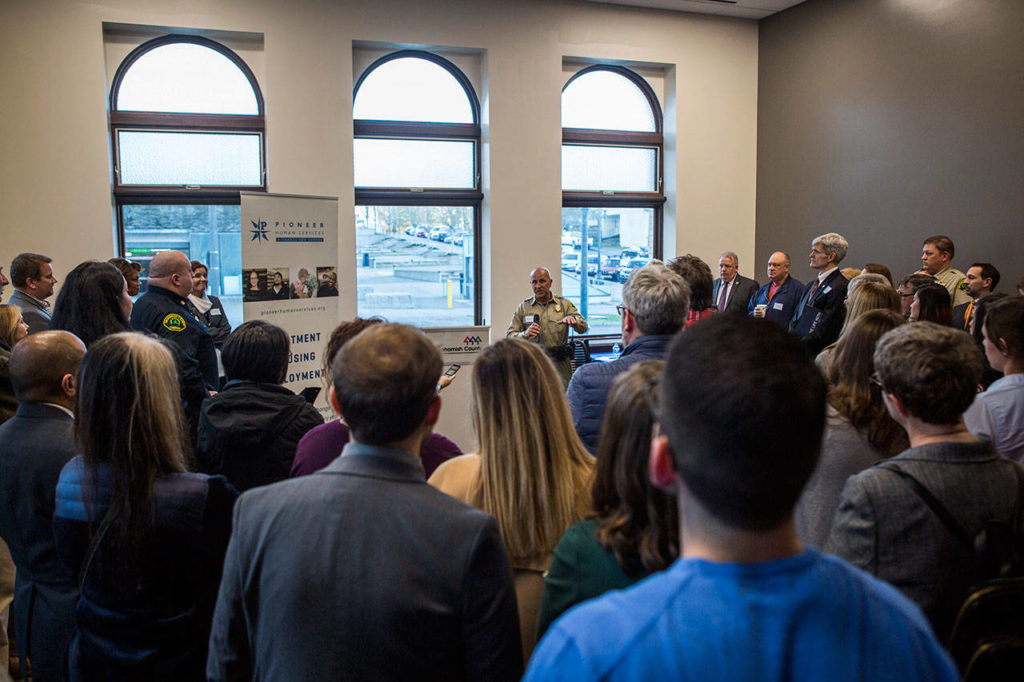EVERETT — The leaded glass doors could soon mark the threshold for new lives.
For years, the Carnegie Building sat dormant in downtown Everett, a crumbling beauty in the hulking shadow of the Snohomish County Jail.
The county has finished an extensive renovation of the 1905 building, one of thousands built in the era with a grant from industrialist Andrew Carnegie. With the start of the new year, the architectural gem will be reborn as the Carnegie Resource Center. Under one roof, the center will offer services for people living with homelessness, addiction and incarceration.
“The Carnegie center is now open as a gateway to a new start,” County Executive Dave Somers said, in an announcement.
The center is part of the county’s larger strategy to combat an opioid crisis and related problems. The effort has focused on melding aspects of the criminal justice system with social services. That’s included teams of social workers who are now working side by side with sheriff’s deputies to get people out of homeless encampments, and away from the criminal activities that typically fester there, into more productive lives.
A diversion center that opened directly in back of the Carnegie Building this spring has seen more than 400 referrals from those deputy-social worker teams, said Shari Ireton, a spokeswoman for the sheriff’s office.
“There are a lot of reasons why people who are afflicted with addiction and homelessness shouldn’t suffer in our jail,” said Sheriff Ty Trenary, who often speaks about how his thinking on those issues has changed during his career.
The diversion center is a controlled environment, where people can stay overnight for a couple of weeks as they connect to longer-term services.
The Carnegie center, by contrast, is a one-stop-shop for assistance during business hours. Clients can walk in without an appointment.
The county has contracted with Pioneer Human Services to run it. It’s expected to cost about $300,000 per year, county spokesman Kent Patton said. To pay for it, the county’s Human Services Department is using money from the Chemical Dependency and Mental Health Sales Tax.
From the reception desk, people can move around the main floor to link up with housing, employment or behavioral health resources. Agencies setting up inside will include: Catholic Community Services, Volunteers of America Western Washington, Community Health Centers of Snohomish County, Center for Human Services, Refugee and Immigrant Services Northwest, Goodwill Industries, Housing Hope, the state Department of Social and Health Services and Workforce Snohomish.
Until now, there’s been no single spot, locally, where someone could find all those agencies under one roof. By bus, that’s posed a huge obstacle.
“You may go from north Everett to Lynnwood and Marysville in a day to get services,” said Calei Vaughn, the new center’s director.
The library building is an example of a style known as Second Renaissance Revival, according to the county facilities department. It’s modeled after the Carnegie Library in Pomona, California.
The Carnegie Library in Everett was turned into a mortuary from 1934 until 1980, when the county bought it. It’s been used for various county departments over time, but has been vacant for several years.
Since 2012, the county has spent more than $3.8 million to rehab the building. That includes major structural work to better withstand earthquakes, as well as exterior renovations and mechanical upgrades.
Lolly Huggins, as the project coordinator for the county, described recent stages of the project.
“We tried to keep this all period style, but we do have modern touches,” Huggins said.
Those touches include LED lighting and modern windows with an accurate vintage appearance.
As she led a short tour, Huggins craned her neck to admire the handiwork above the reception area, ornate woodwork against a textured tin ceiling.
“This is all original dentil,” Huggins said, using an architectural term for the tooth-like molding above. “All of that is original including the gold tin — it’s not wallpaper, it’s actually metal.”
Noah Haglund: 425-339-3465; nhaglund@heraldnet.com. Twitter: @NWhaglund.
Talk to us
> Give us your news tips.
> Send us a letter to the editor.
> More Herald contact information.




























